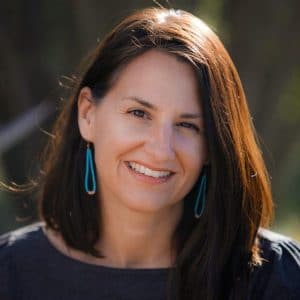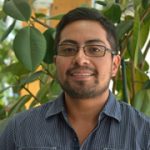
In 2019, US Customs and Border Protection apprehended 73,235 unaccompanied minors attempting to cross into the United States from Mexico, El Salvador, Guatemala and Honduras. While their path was fraught with danger last year, their journey has become even more dangerous in a time when the COVID-19 pandemic has reached global proportions.
Samantha Sabo, an associate professor with NAU’s Center for Health Equity Research and the NAU Department of Health Sciences, recently published an article titled “A Study and Analysis of the Treatment of Mexican Unaccompanied Minors by Customs and Border Protection” in the Journal on Migration and Human Security analyzing the treatment of unaccompanied minor children from Mexico in detention by US Customs and Border Protection.
“The challenges and hardships faced by children crossing the US-Mexico border alone and without family members is truly beyond the imaginable,” Sabo said. “In our study of 97 unaccompanied minors who crossed the US border, who were detained by US Customs and Border Protection, or CBP, and then deported, we found egregious legal and policy violations.
“First, youth reported conditions that directly violated the Flores Settlement. Children endured cold temperatures, were not fed adequately, and did not receive medical care when they requested it,” she said.
The Flores Settlement agreement, a 1987 class-action lawsuit in California, outlined standards for the detention and release of unaccompanied minors taken into custody by the Department of Homeland Security and the Department of Health and Human Services. Sabo said that the unaccompanied minors in the study also reported instances of physical abuse, verbal abuse and being threatened by a weapon by CBP personnel.
“Results from our study found due process deficiencies, which directly violate the Trafficking Victims Protection Reauthorization Act or TVPRA and the US Constitution,” Sabo said. “CBP inconsistently screened or accounted for fear of return, trafficking, or age. Yet these conditions make youth potentially eligible for transfer to the Office of Refugee Resettlement and legal status in the United States.”
Sabo has more than 15 years of training, experience and partnerships with organizations serving Latino, immigrant, and Indigenous communities with a research focus on the impact of community health worker (CHW) intervention and advocacy on the health equity of marginalized populations.
Ensuring the health and safety of families
In response to ensuring the health and safety of immigrant families in the US during COVID-19 and in collaboration with Colegio de la Frontera Norte and the University of Arizona, Sabo recently published an article titled “Essential and Excluded from the Public Health Response––Recommendations for Meeting the Needs of Immigrants in the US During COVID-19.”
The article highlights how undocumented immigrants in the United States, though they are a community of 10.7 million, make up 5 percent of the US population and are overrepresented in essential economic sectors like agriculture, hospitality and healthcare, are excluded from health and economic safeguards and federal relief efforts under COVID-19.
“The health and safety of immigrant workers and their families must be considered in COVID-19 response” Sabo said. “In our article, we outline several public health, workplace and immigration actions that counties and states can turn to now to protect these essential workers. Here in Flagstaff, our economy is largely driven by tourism, of which immigrant workers are fundamental. Grassroots organizations like El Pueblo de Flagstaff have led by example in how communities can establish mutual aid campaigns to provide economic relief to immigrants who are excluded from all safety net systems currently.”

Of most urgency to Sabo and her co-authors, including NAU Master of Public Health graduate student Omar Gomez, is implementing immediate workplace protections and employment benefits. Aid programs she mentioned include those in states that assist immigrants through state relief payments that are federally excluded from assistance, such as California’s implementation of Disaster Relief Assistance for unemployed immigrants.
She said that Arizona has taken small steps to mitigate the effects on Arizona residents through the Rental Eviction Prevention Assistance program that provides renters with eviction relief, which is vital to protecting immigrant families and children in crisis.
According to Sabo, it is most important for local and state agencies to work closely with non-profit, political, and mutual aid organizations who often hold trusted positions in the immigrant community and can support effective outreach, resource sharing and capacity building.